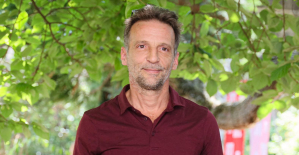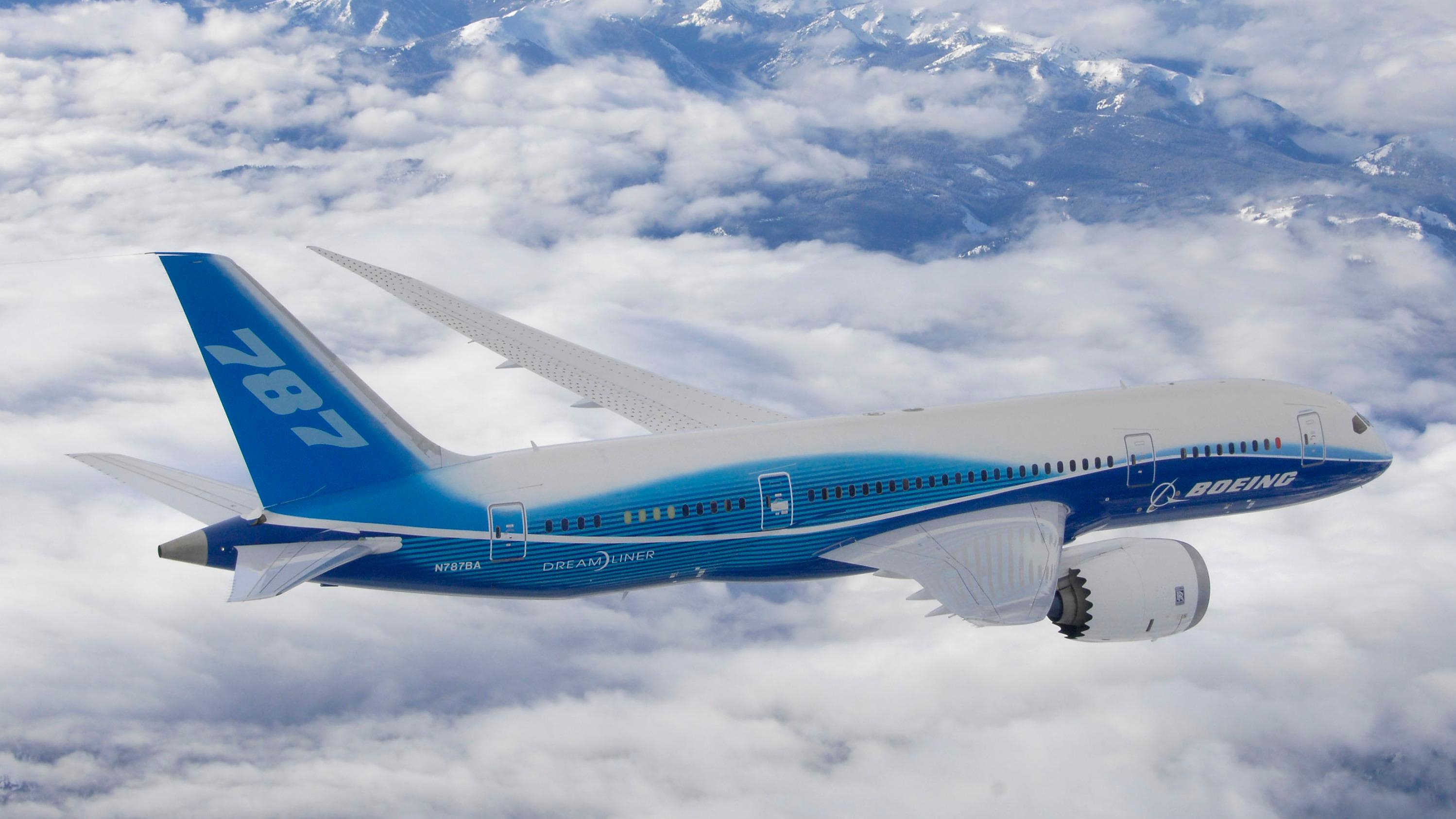The Americans are back! The abolition of the corona restrictions and the crash of the euro make Germany more attractive for US travelers than it has been for a long time. "The best time to travel to Europe is now," reports financial news agency Bloomberg. And the television station CBS raves: "Everything will be cheaper when you visit than it has been in decades."
German cities are teeming with visitors from South Dakota, California and Michigan this year. Rick Steves, the most popular travel author in the USA, is also in Germany, shooting travel films, doing research for his more than 1,000-page "Germany" travel guide and is happy to be back here.
WELT AM SONNTAG: Americans have been coming to Germany in droves since the summer. What are US tourists looking for here?
Rick Steves: A mixture of confirmation and surprise. Confirmation that it is exactly as you think you know it: the beer gardens, the Rhine, the Berlin Wall, the Black Forest cake. Then the surprise that is not in any travel guide: a street music festival in a small town, the customs in a wine bar, a visit to a wellness area in a German hotel. Everything new, everything exciting!
It's best if you combine both worlds: First you drive to Neuschwanstein, but then you go ten kilometers from the castle to an inn that doesn't serve Americans or Japanese.
WELT AM SONNTAG: Even if the number of American visitors to Europe is currently increasing: your compatriots are generally reluctant when it comes to traveling outside the USA. How so?
Steves: Many are convinced that we have everything here in the USA anyway: tropical beaches, arctic ice deserts, great cities with over a million inhabitants, secluded lakes and forests. So why leave? But I think there is also a great fear of the unknown. Another language? Other customs? other money? It's more tiring than a vacation at an Orlando amusement park.
And more dangerous. In the past few decades, news programs in the USA have increasingly developed into entertainment programs that thrive on creating fear: fear of possible terrorist attacks, crime, catastrophes of all kinds. For many, this fear is a reason not to go out into the world to travel.
WELT AM SONNTAG: Do Americans travel differently?
Steves: We in the US have the shortest vacations in the rich world. When we then “make Europe”, there is this bucket list that we work through frantically: Bavaria on Tuesday, Berlin on Wednesday, and Paris on Thursday. There's a reason we don't have a word for the German term 'Gemütlichkeit'. We are not comfortable. This non-engagement means that we always remain somehow alien.
German language difficult language. Compound nouns and umlauts can have a deterrent effect on German beginners. Language students from 46 countries were now allowed to choose their favorite words.
Source: WORLD / Lea Freist
WELT AM SONNTAG: What is a typical American faux pas in Germany?
Steves: At home we point a finger when we want to order a beer. In Germany, where counting begins with the thumbs, people often see things differently – and suddenly there are two beer glasses in front of you. Fortunately, a solvable problem!
WELT AM SONNTAG: What can't you get used to when you're a US tourist here?
Steves: What we find strange: The fact that people in Germany like to eat white asparagus is more of a curiosity in the USA. The floor count is confusing: what we know as the first floor in the USA is the ground floor in Germany. I don't think there is an American who hasn't stood on the wrong floor here at some point.
My compatriots, on the other hand, quickly get used to the fact that there is no speed limit on German autobahns. Then when they come back to the US, they tend to run wild. One can only hope that they will get away with explaining to the police officer who caught them that they have just been to Germany.
WELT AM SONNTAG: What surprises US tourists in Germany the most?
Steves: You are amazed at the strong roots of the Europeans. About this feeling that the German word Heimat contains. Pride, a certain sense of being cared for and also the awareness that you feel a responsibility and connection to the place where you were born or grew up play a part.
It all leads to a kind of culture shock. But I find it very important, very healing and enriching. Traveling can be a playground, a school or a church. In my opinion it should be a mixture of all these components.
WELT AM SONNTAG: What changes have you noticed in Germany over the past 40 years?
Steves: That sounds a bit abstract, but it's the economies of scale: Large chains are crowding out small family businesses. This is the case with craft businesses, cafés, in the inner cities. I am very afraid that Corona is more likely to ruin the small tavern than a fast food chain. The attitude is falling behind that a community is much more than an environment for big corporations to make money.
The regional peculiarities, the local dialects, the bizarre differences, all of this is unfortunately on the decline. I am a capitalist, but capitalism needs an arbiter to make it good capitalism.
WELT AM SONNTAG: Doesn't sound like the typical American.
Steves: What does a typical American sound like? For example: "I love America, and the best moment of my travels is when I'm back home." Many of my compatriots believe that our country is the best, the most important, the only true one. The interesting thing is that people in Thailand or Wales or Thuringia see their country the same way.
I want Americans to learn that things can be done differently. Whether it's how we treat each other, the look at nudity, at history, at drugs, at gun ownership or religion. The best souvenir is a broader perspective.
WELT AM SONNTAG: What is your biggest challenge in communicating Europe?
Steve's: The Story. Everything in Europe has a reason and a background. Not engaging with the history of the country you are visiting is like going to a 3D movie but without 3D glasses. People who just follow the guide with the flag and have no idea what they are seeing are missing out. They are the sheep of tourism. They are like kindergarten children who are in the most beautiful library in the world but unfortunately cannot read.
WELT AM SONNTAG: Let's turn the tables: What do you notice about German tourists in the USA?
Steves: Germans always seem to have a plan in mind for what's next. My impression is that they have prepared themselves very well for the trip and that they are doing what they set out to do on the way. They often have something very diligent, eager about them, "Exactly!", "That's right!", "Right", one hears there. And you can recognize them by their walking sticks.
WELT AM SONNTAG: On hiking sticks?
Steves: Yes, they bring them over thousands of kilometers to go through a national park here. Personally, I love the poles too, because of my knees, but hardly any American would use one.
WELT AM SONNTAG: What experiences in Germany impressed you?
Steves: I could mention hundreds here, but I'll just tell you about a few: There's the Sauter piano factory in the Black Forest, for me a symbol of what I love about Germany, this passion for excellent craftsmanship. I even bought a piano there!
Then a visit to Eltz Castle on the Rhine. It has been owned by the same family since it was built. You can feel the pride in your own history and these deep roots particularly strongly there.
In Passau I was fascinated by the incredible organ in the cathedral - but even more by meeting a man afterwards in a tavern. He was one of Johannes Kepler's descendants and showed me how to snuff tobacco properly.
WELT AM SONNTAG: You see yourself more as an educator than as a describer, right?
Steves: Traveling is a political act. Getting to know other countries, cultures and people is the most important step in understanding that there are billions of different approaches to living your life. Bigotry is bad. I think it decreases the more you just notice others. Germany does many things better than America. America does many other things better than Germany. The most important thing is that we stay open to each other.
The 67-year-old has published hundreds of travel guides in the USA since 1980, with a total circulation of several million, mainly about European destinations - he still spends around a third of the year in Europe. He also produces TV series about travel destinations and has hosted the radio show Travel with Rick Steves since 2005, which is broadcast by more than 400 US stations. He undertook his first trip to Europe at the age of 14.

 Torrential rains in Dubai: “The event is so intense that we cannot find analogues in our databases”
Torrential rains in Dubai: “The event is so intense that we cannot find analogues in our databases” Rishi Sunak wants a tobacco-free UK
Rishi Sunak wants a tobacco-free UK In Africa, the number of millionaires will boom over the next ten years
In Africa, the number of millionaires will boom over the next ten years Iran's attack on Israel: these false, misleading images spreading on social networks
Iran's attack on Israel: these false, misleading images spreading on social networks New generation mosquito nets prove much more effective against malaria
New generation mosquito nets prove much more effective against malaria Covid-19: everything you need to know about the new vaccination campaign which is starting
Covid-19: everything you need to know about the new vaccination campaign which is starting The best laptops of the moment boast artificial intelligence
The best laptops of the moment boast artificial intelligence Amazon invests 700 million in robotizing its warehouses in Europe
Amazon invests 700 million in robotizing its warehouses in Europe Switch or signaling breakdown, operating incident or catenaries... Do you speak the language of RATP and SNCF?
Switch or signaling breakdown, operating incident or catenaries... Do you speak the language of RATP and SNCF? Transport in Île-de-France: operators are pulling out all the stops on passenger information before the Olympics
Transport in Île-de-France: operators are pulling out all the stops on passenger information before the Olympics Radio audiences: France Inter remains firmly in the lead, Europe 1 continues its rise
Radio audiences: France Inter remains firmly in the lead, Europe 1 continues its rise Russian cyberattacks pose a global “threat”, Google warns
Russian cyberattacks pose a global “threat”, Google warns A new Lennon-McCartney duo, more than 50 years after the Beatles split
A new Lennon-McCartney duo, more than 50 years after the Beatles split The Curse vs Immaculée: two thrillers but only one plot
The Curse vs Immaculée: two thrillers but only one plot Mathieu Kassovitz adapts The Beast is Dead!, the comic book about the Second World War and the Occupation by Calvo
Mathieu Kassovitz adapts The Beast is Dead!, the comic book about the Second World War and the Occupation by Calvo Goldorak 'has never lived so much as now'
Goldorak 'has never lived so much as now' Skoda Kodiaq 2024: a 'beast' plug-in hybrid SUV
Skoda Kodiaq 2024: a 'beast' plug-in hybrid SUV Tesla launches a new Model Y with 600 km of autonomy at a "more accessible price"
Tesla launches a new Model Y with 600 km of autonomy at a "more accessible price" The 10 best-selling cars in March 2024 in Spain: sales fall due to Easter
The 10 best-selling cars in March 2024 in Spain: sales fall due to Easter A private jet company buys more than 100 flying cars
A private jet company buys more than 100 flying cars This is how housing prices have changed in Spain in the last decade
This is how housing prices have changed in Spain in the last decade The home mortgage firm drops 10% in January and interest soars to 3.46%
The home mortgage firm drops 10% in January and interest soars to 3.46% The jewel of the Rocío de Nagüeles urbanization: a dream villa in Marbella
The jewel of the Rocío de Nagüeles urbanization: a dream villa in Marbella Rental prices grow by 7.3% in February: where does it go up and where does it go down?
Rental prices grow by 7.3% in February: where does it go up and where does it go down? Europeans: the schedule of debates to follow between now and June 9
Europeans: the schedule of debates to follow between now and June 9 Europeans: “In France, there is a left and there is a right,” assures Bellamy
Europeans: “In France, there is a left and there is a right,” assures Bellamy During the night of the economy, the right points out the budgetary flaws of the macronie
During the night of the economy, the right points out the budgetary flaws of the macronie Europeans: Glucksmann denounces “Emmanuel Macron’s failure” in the face of Bardella’s success
Europeans: Glucksmann denounces “Emmanuel Macron’s failure” in the face of Bardella’s success These French cities that will boycott the World Cup in Qatar
These French cities that will boycott the World Cup in Qatar Champions League: semi-final schedule revealed
Champions League: semi-final schedule revealed Serie A: AS Roma extends Daniele De Rossi
Serie A: AS Roma extends Daniele De Rossi Ligue 1: hard blow for Monaco with Golovin’s premature end to the season
Ligue 1: hard blow for Monaco with Golovin’s premature end to the season Paris 2024 Olympics: two French people deprived of the Olympic Games because of a calculation error by the international federation?
Paris 2024 Olympics: two French people deprived of the Olympic Games because of a calculation error by the international federation?


















